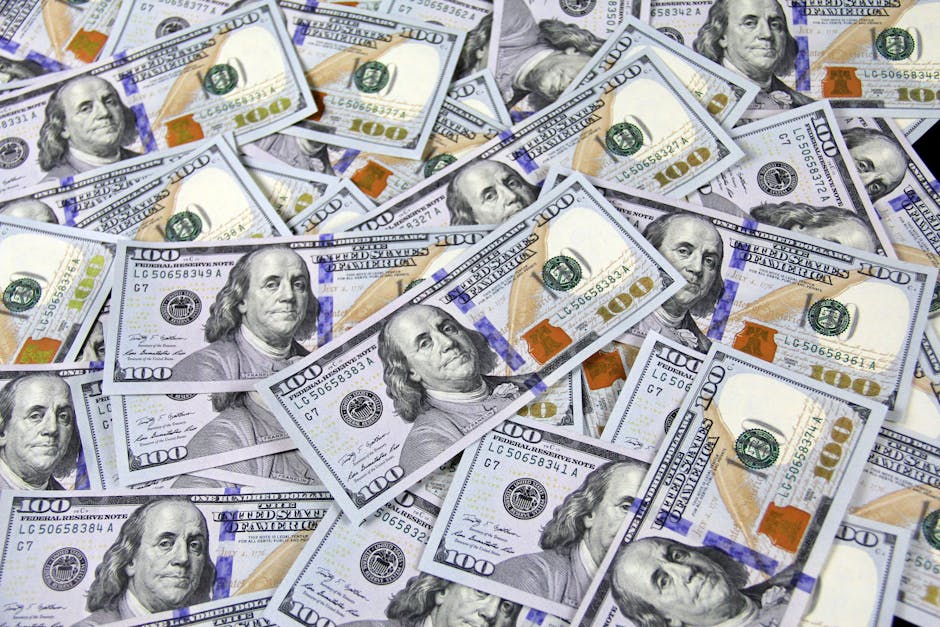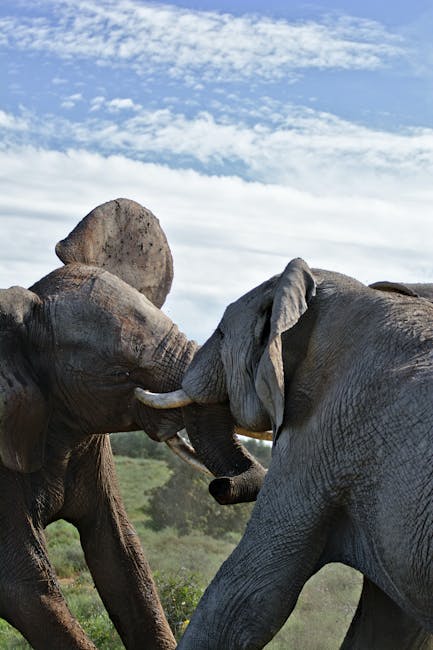Exploring what constitutes wealth has always been a subject of interest from ancient times to the present. In ancient times, the concept of wealth was relatively simple and clear, usually referring to tangible and valuable items like land, property, and various gemstones, plus metal currencies such as silver and gold. However, as times have developed, especially with the booming financial industry, the connotation of wealth has begun to change.
In the modern economic environment, the manifestations of wealth are no longer confined to tangible assets. The earning capacity of an economic entity, whether an individual or a business, has been incorporated into the definition of wealth. For example, a company that can generate a million dollars in profit each year, even if its physical assets are not extensive, may still have a market valuation of tens of millions; similarly, a football player who can bring his club earnings several times his worth will naturally see an increase in his own market value.
Furthermore, the possibility of future profits has also been regarded as an important form of wealth. For instance, some companies, despite being unprofitable at present, enjoy high commercial value due to the market’s confidence in their future potential, allowing them to go public successfully, with shareholders reaping benefits by selling shares. This phenomenon surprises some people, but in fact, some companies do make a profit and prove their worth, while others have become history before their expected future earnings are realized.
Consensus, a concept even more elusive than the prospect of future profits, can also establish so-called wealth. For example, if someone speculates that tulip bulbs will increase in value, they might invest in purchasing them in hope of selling at a higher price in the future. If only a few people think this way, the value of tulip bulbs might be limited to their ornamental use. However, if enough people agree and form a consensus that no matter their current use, they will sell for a good price in the future, tulip bulbs may be seen as a form of wealth by investors, and their price may soar accordingly.
Historical tulip mania is not an isolated incident; garlic, Pu-erh tea, cordyceps, winter crab vouchers, even land on the moon or diamonds in stellar cores have been hyped. Behind the sustained hype of these examples lies a common factor—consensus. Widely recognized consensus can elevate the value of straw, and the phenomenon of various so-called “air coin” speculations is similar.
Indeed, even for antiques and paintings, their prices often only partially reflect the actual art and collectable value; a larger part is bestowed by consensus. The business value traditional investors focus on, although partly based on their earning capacity and expected future earnings, still stems significantly from the market’s consensus.
In today’s financial markets, consensus can be regarded as a tremendous form of wealth. The well-known financial expert and author of “A Random Walk Down Wall Street,” Burton G. Malkiel points out that though it’s important to invest according to business value, if one only limits themselves to this, they may miss many money-making opportunities. This is because the consensus in the investment market has a potent ability to drive asset values to new heights. Whether you like it or not, recognizing and utilizing this force is vital for successful investing.
The influence of belief on wealth is profound and stable, and this belief is not referring to religious faith, although their firmness and fervor are comparable. For example, the significant enhancement of wealth during the industrialization of East Asian countries did not rely entirely on corporate profits or returns from stocks and bonds, but rather the effects of real estate appreciation were more prominent. In the real estate market, land price is a key factor, while construction costs are negligible compared to land price. This is especially evident in central cities, particularly in high-quality communities. This phenomenon also reflects the influence of David Ricardo’s theory of rent, which I have detailed in “Letters from Silicon Valley – Season Three”.
However, the value of land itself is fundamentally unchanged, and the soaring land prices are mainly thanks to the belief in real estate. Many believe that housing prices will rise forever, that prime locations in central cities will continuously appreciate due to the growing population and the increasing demand for housing. The faith in real estate in East Asian society might be related to the long-standing agricultural tradition where people from different social strata dream of owning their piece of land or property. During the Qing dynasty, princes, nobles, and the elite who were wealthy would build gardens, while merchants would purchase properties, giving birth to the real estate faith. The surge in wealth triggered by the Industrial Revolution enabled many ordinary people to realize the dreams of their ancestors.
The example of the Tokyo Imperial Palace is one of the most steadfast manifestations of real estate faith. This 1.5 square kilometer plot of land, along with its adjacent areas, is valued at one-third the price of the entire state of California. California, being the most populous and advanced state in the US, ranks as the fifth largest economy in the world, surpassing the United Kingdom and India. It is home to Silicon Valley and Hollywood, hosts numerous billionaires, and is known for high property prices. Yet, its land value is less than that of only 4.5 square kilometers in Tokyo. This phenomenon has far exceeded the explanations provided by the Ricardian rent theory and seems not to require widespread consensus, only a fraction of steadfast believers. Similar situations have also occurred in South Korea, Hong Kong, and some cities in mainland China.
Belief and consensus are somewhat similar, but there are also significant differences between them. Groups forming consensus tend to be a temporary assembly and easily disperse, while the power of belief is more enduring and deeply rooted.
It is for this reason that the Tulip Bubble burst in an instant, and similarly, many shitcoins can vanish overnight. Belief, on the other hand, is different; its followers are always resolute. Although they may be few in number, whenever their belief is threatened, it is they who step forward and are even willing to maintain their belief with a martyr’s stance. It is these individuals who become the pillars of belief, ensuring the stable transmission of certain wealth creeds. There have been many moments of obliteration, but the reason Bitcoin remains well-positioned is because of those staunch supporters who hold a deep belief in decentralization and anti-government currency.
I have dealt with quite a few individuals who see the government as an “evil force”, believing that it controls the world economy through arbitrary money printing and is unable to curb the pace of increased currency issuance. For them, a currency issuing system completely defined by algorithms and not manipulated by the government is not only the best solution but also the only way out. This belief goes beyond mere pursuit of wealth; they are not just chasing the short-term benefits of speculative digital currencies, so even when there is no profit to be made, their faith and sense of mission still shine brightly.
Complementing these cryptocurrency believers is a group of self-proclaimed globalization believers who claim to be above politics and discuss only business and technology. They firmly believe that technology and business can overcome all problems, that the importance of government is diminishing, and even national sovereignty is becoming optional. These people believe that individuals and corporations with cutting-edge technology should have the right to lead the world’s development through their technology and products. If a government tries to maintain national sovereignty, it is accused of disrupting globalization. This idea is not only transformed into reality through direct investment but also spread through publishing books and holding lectures, with the fundamental goal being to convince the audience and readers that in the future, the importance of nations will gradually fade. Iconic figures include Elon Musk, Steve Jobs’ successor Tim Cook, and “tech prophet” Kevin Kelly.
Whether this belief is a true insight, we cannot judge today, but it is undeniable that such beliefs have deeply influenced how the capital market values them. In other words, for many people, faith occupies an important part of their wealth. It shows that faith is closely related to the times; yesterday’s beliefs may not bring wealth today, and today’s beliefs may not guarantee the preservation of assets tomorrow.
The world not only has positive numbers but also negative numbers. Today, defining what is wealth is a difficult question. For example, in 2022, Musk’s assets were about $250 billion; Amazon founder Jeff Bezos had about $170 billion; and Bernard Arnault, chairman of Moët Hennessy-Louis Vuitton (LVMH), and his family members had assets around $200 billion. Among these vast sums of money, how much is tangible and how much is merely reliant on expectations for the future, consensus on the new energy economy, and support from the belief in globalization, is an unknown. Therefore, media debates about who among them could become the “world’s richest person” are pointless, much like discussing whether a tofu or a loaf of bread is more nutritious. In reality, compared to Musk’s $250 billion in assets, his real estate and cash assets are almost negligible, and if you add in debts, his net worth could very well be negative.
The consensus on the importance of the green economy, expectations for artificial intelligence technology, and confidence in humanity’s future exploration of the universe are all key factors driving a billionaire to become the wealthiest person in the world. This wealth valuation of up to $250 billion is obtained through a specific calculation method by the billionaire. However, the reality is that if he tried to liquidate all these assets, the cash he could ultimately get his hands on might only amount to one-tenth of that figure.
In fact, there are many factors that influence what we call wealth, and they are not much different from this wealthy person’s situation, only the scale is different. For the vast majority of people, the wealth they possess is not cash or items that can be easily converted into cash, such as high-grade short-term bonds. In China, most people’s wealth is usually the net value of their real estate, that is, the market value minus the unpaid mortgage.
Many people think that a house they bought for 10 million yuan still retains its value today, but this is a misunderstanding. For example, if there’s still a debt of 6 million yuan on the house loan, then the net asset value of the property is actually 4 million yuan. If you plan to repay the loan over 20 years with an annual interest rate of 5%, you actually need to pay 9.5 million yuan. In other words, although you can immediately sell the house for 4 million yuan in cash, holding it in the long run will involve an interest burden of 3.5 million yuan.
In the end, when the mortgage is paid off, you have paid a total of 9.5 million yuan on the loan plus the initial down payment of 4 million yuan, totaling 13.5 million yuan, but only for a property worth 10 million yuan. Somebody might point out that in 20 years the value of the house could double to 20 million yuan, which seems like a profit of 10 million yuan. This profit is actually based on the belief in real estate: as long as someone else believes in the value of real estate increasing, you can consider yourself to have this wealth, because you can sell the house to them.
However, if everyone’s belief in real estate disappears, then that wealth of 10 million yuan will also vanish into thin air. Taking Japan as an example, the current value of many houses is not as high as when they were first purchased, and this does not take into account many years of maintenance costs and loan interest. In the world, many people are not aware that the calculation of wealth involves both profits and losses.
Usually, people only see the income of 10 million yuan and choose to ignore the input of 13.5 million yuan. Although you have enjoyed 20 years of high-quality life, this is also a reasonable lifestyle choice. As I have emphasized many times before, when buying your first house, you should not pay too much attention to its potential appreciation but should focus more on the comfort of living.
But it is worth noting that when we invest our funds in real estate, we must consider how much of it is based on the faith in real estate. Once the consensus or belief disappears, the wealth previously on the books will also cease to exist. The difference is that the loss of consensus often happens suddenly, whereas the loss of faith is a gradual process, giving us enough time to exit.
However, because of human greed, many people give up the chance to exit, always hoping to gain more profit and may end up with nothing.
Exploring the meaning of wealth is an eternal topic. Wealth is not merely a simple accumulation of amounts; it is a complex product composed of two key factors: time and capability. Let’s first put aside the time dimension and focus on the two core elements: personal capability and the ability to mobilize resources.
Imagine you own one million yuan in cash or equivalent assets, this wealth gives you the opportunity to mobilize resources for your use. For example, you can rent a shop, hire employees, and start a restaurant. If you have the necessary business acumen, this restaurant can continue to bring you revenue, and after deducting necessary expenses, the annual profit may reach 200,000 yuan. Assuming the average return rate in the catering industry is 10%, and your restaurant can achieve a return of 20%, then based on this ratio, your one million yuan investment actually creates a value of two million yuan. This is the embodiment of wealth.
If the amount of capital expands to 100 million yuan, and your capability is sufficient to utilize this capital, you might establish a large chain catering business, and your wealth would grow accordingly. However, if you lack the capacity, this capital will eventually become your contribution to society. Some may consider it a waste, but wealth, like matter, possesses the characteristic of being indestructible. This 100 million yuan will nourish numerous families, provide job opportunities for many, support their growth, and may even generate more wealth.
The tangible wealth that we have discussed so far is quantifiable, but for most people, intangible assets are of greater value. Examples include one’s ability to create wealth, the wisdom to preserve and increase value, and though these are difficult to measure numerically, they are indispensable. Many people desire vast wealth; however, if that wealth exists only in the form of land or precious metals, its value often diminishes over time. It is only when you possess the ability to manage and grow that wealth that it holds more practical significance.







